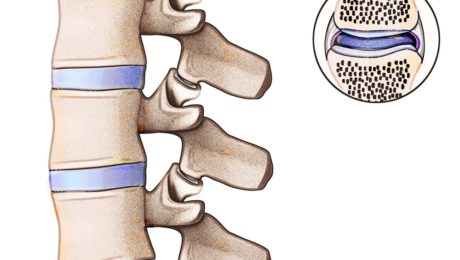Lower back pain causes discomfort and immobility for between 65 and 80 percent of the adult population.
In particular, facet joint syndrome is a leading cause of debilitating pain who have recurrent neck and back problems. In fact, lumbar facet joints account for between 15 and 45 percent of lower back pain.
What is facet joint syndrome and why is it such a serious cause of back pain?
The Causes
Facet joint syndrome is also known as spinal arthritis. Facet joints make up the vertebrae in your back and enable your spine to maintain its flexibility. Healthy facet joints give your back a full range of motion while ensuring it doesn’t over-extend or over-twist.
When facet joints wear and tear over time, your vertebrae can exhibit signs of degeneration causing pain and discomfort. As we age, we are more likely to contract facet joint syndrome. (link to: https://www.ncbi.nlm.nih.gov/pmc/articles/PMC4012322/)
Facet joint syndrome is also caused by other events such as traumatic spinal injuries like those suffered in car accidents, dangerous falls, and intensive sports.
You are more likely to contract facet joint syndrome if you hold the following risk factors:
- Excessive weight
- Lack of physical activity
- Spondylolisthesis
- Malnutrition
 The Symptoms
The Symptoms
Everyone experiences facet joint syndrome differently depending on where the degenerated joint is located and the nature of the damage. The various sections of your spine that have facet joints include: the cervical region (the neck), the lumbar region (low back), and the thoracic region (mid-back).
Facet joint syndrome doesn’t always exhibit symptoms causing it to go undetected until there’s a trigger—a trauma or other event. Acute episodes of sudden pain in the spine’s degenerated region are the most common symptoms of the condition. The pain is most often experienced in the morning or after periods of inactivity and can radiate to other regions of the body.
People who live with facet joint syndrome experience inflammation and tenderness–especially when they extend their back or partake in high impact activities. These conditions cause hypomobility where the weakened facet joints stiffen and the person loses mobility while also suffering from chronic spinal pain.
Treating Facet Joint Syndrome
You don’t have to live with the painful symptoms that come with facet joint syndrome. At Houston Neurosurgery & Spine, our experienced professionals are equipped find viable treatments and help you manage the pain.
Our back and spine center in Houston offers physiotherapy, hot and cold compresses, conservative care procedures, and surgical procedures that have helped hundreds of patients find relief. Our team of distinguished neurosurgeons at our neck and spine center, provides custom pain management strategies that are tailored to your specific diagnosis and medical history.
Contact us at 832.522.8500 to schedule an appointment at our spine surgery center in Houston.

